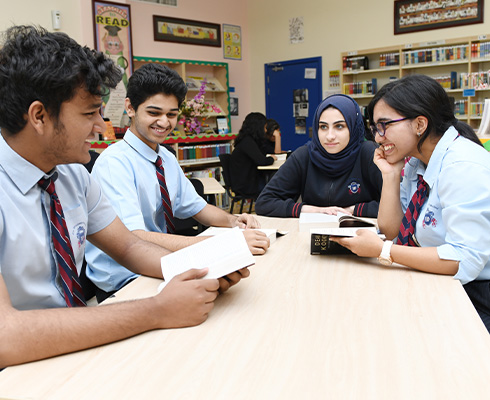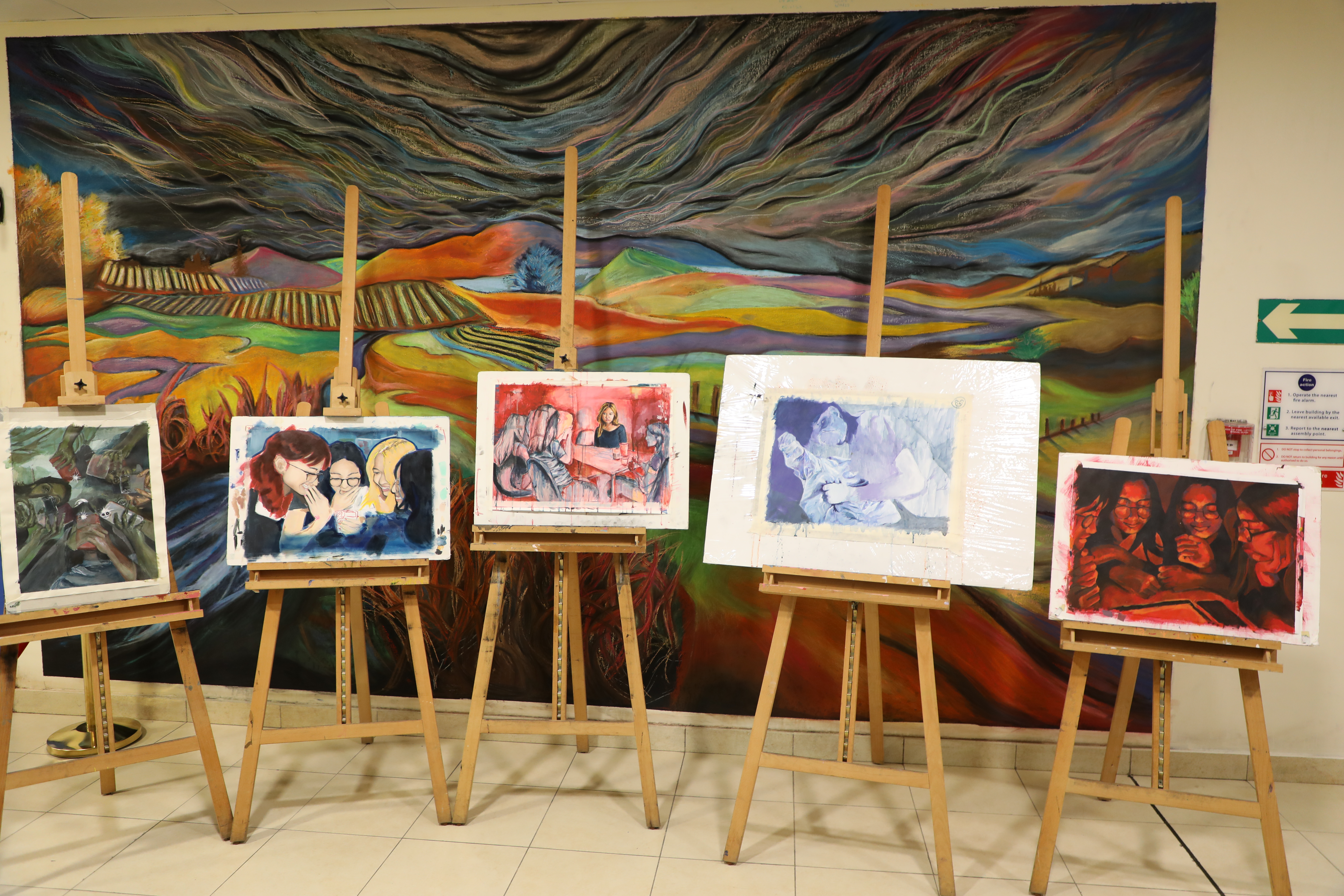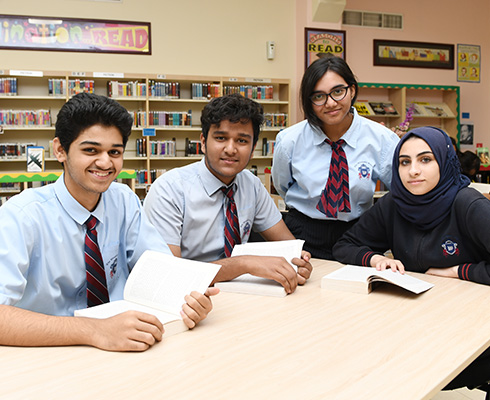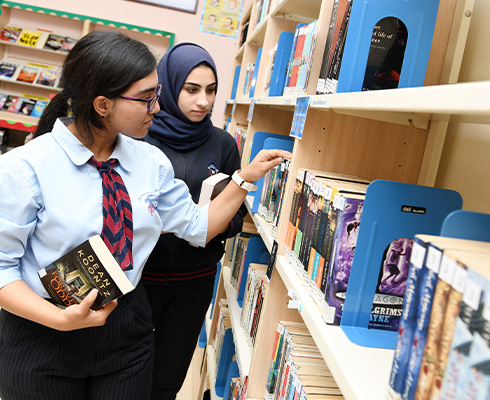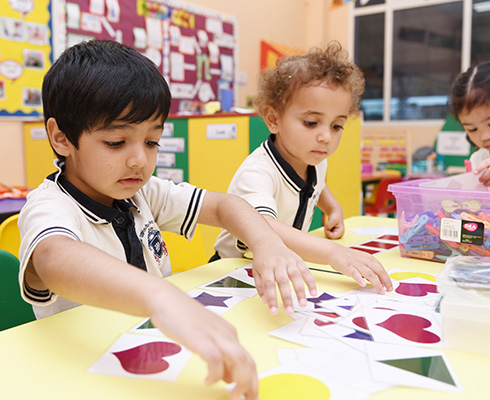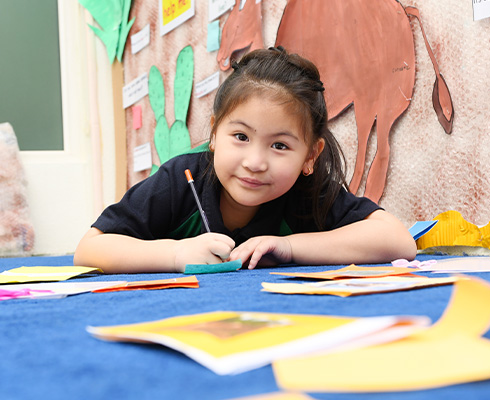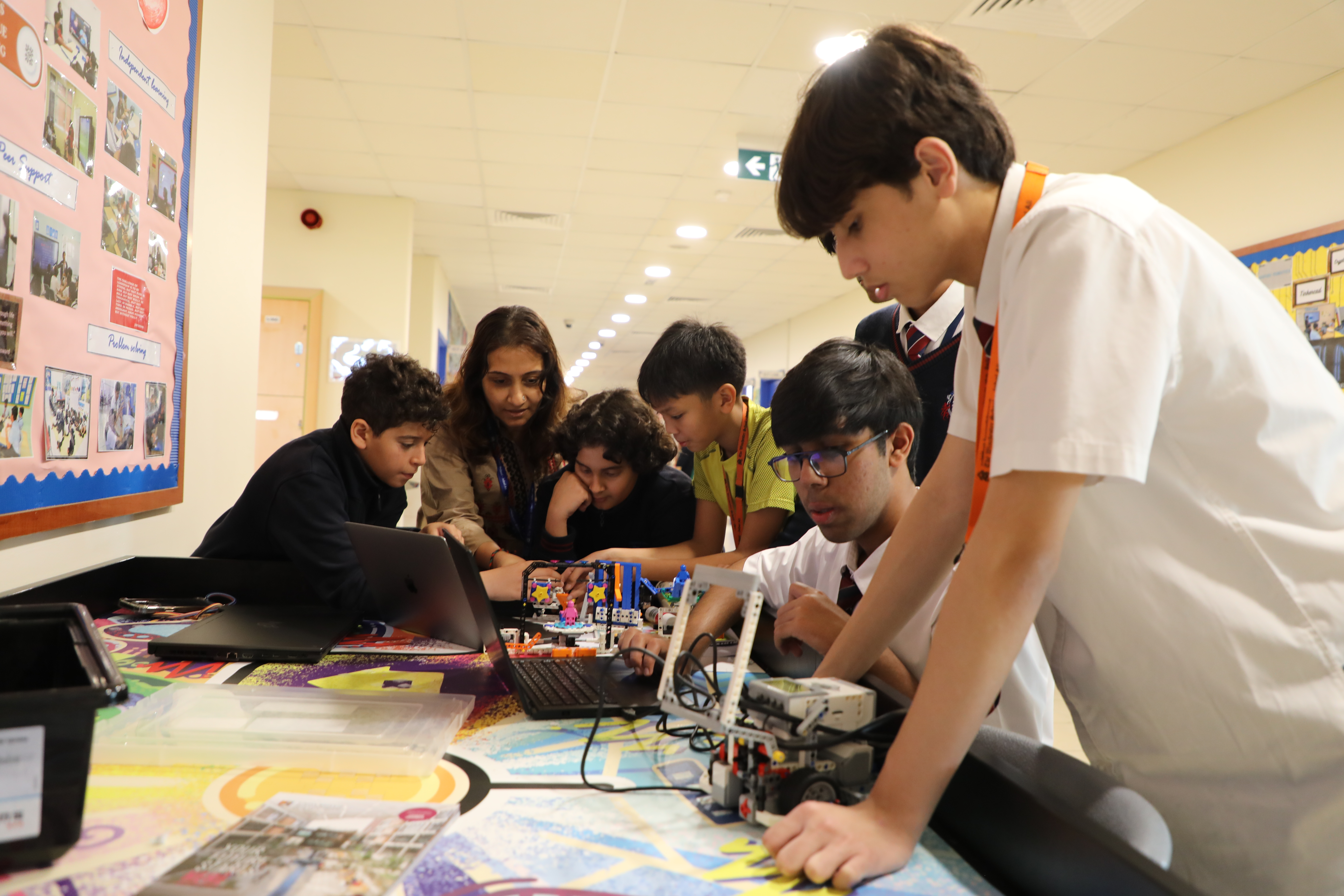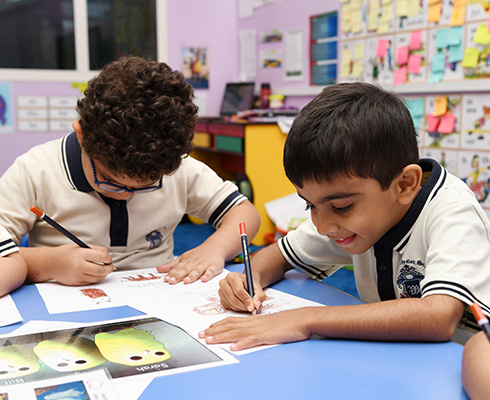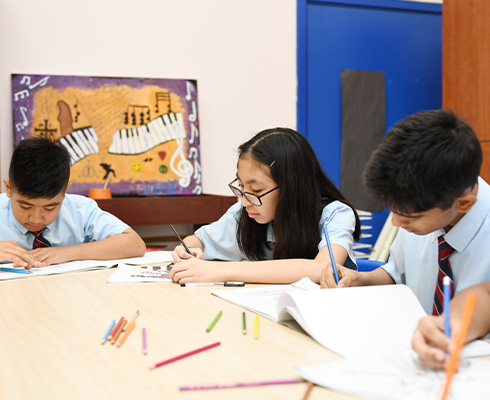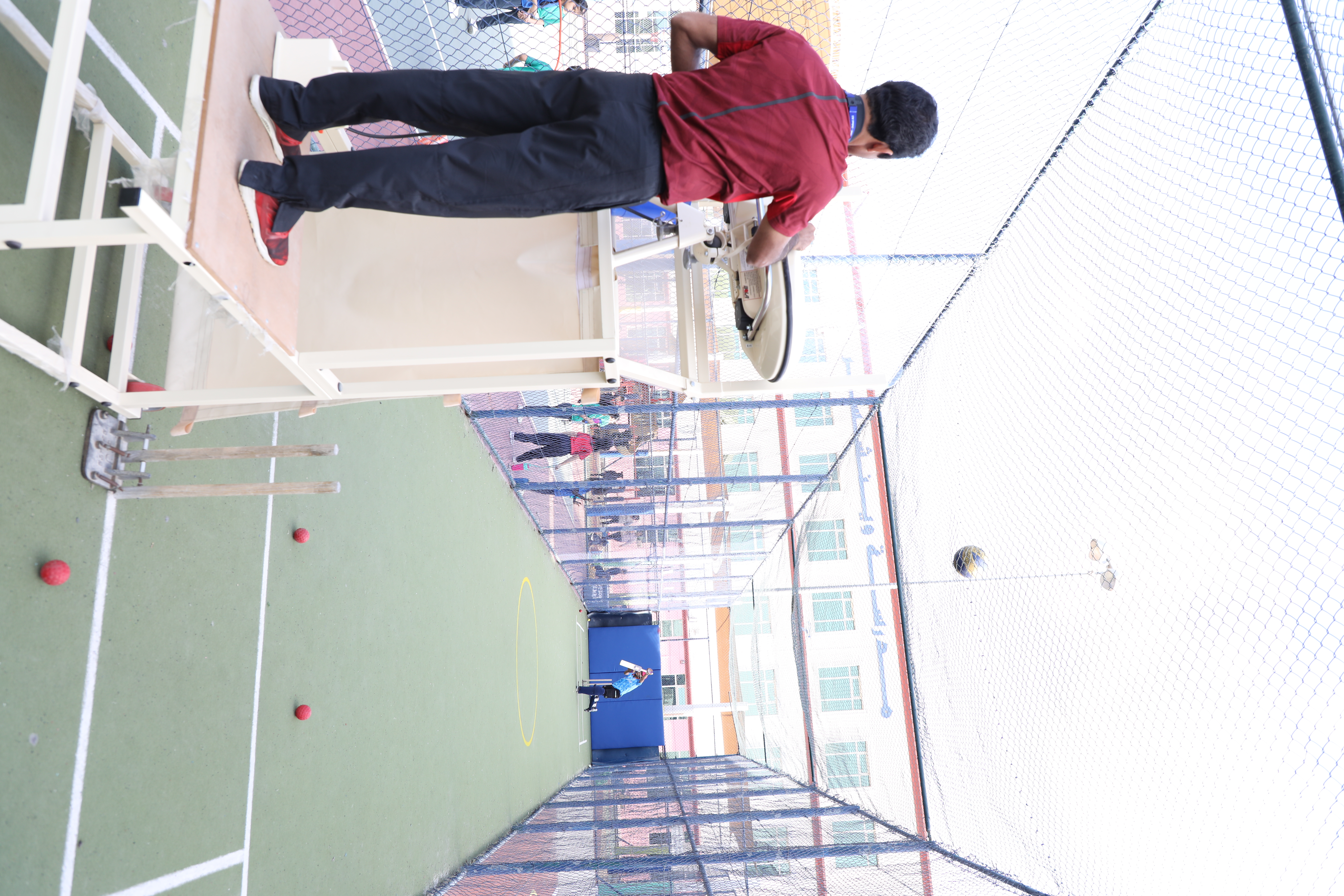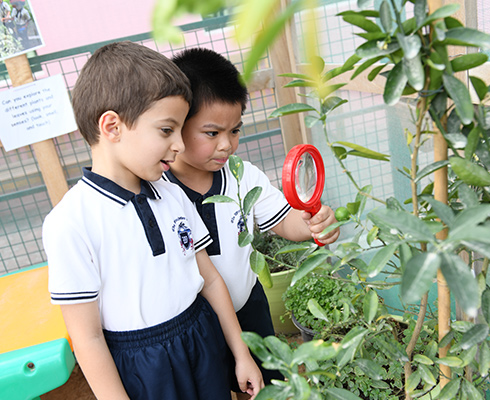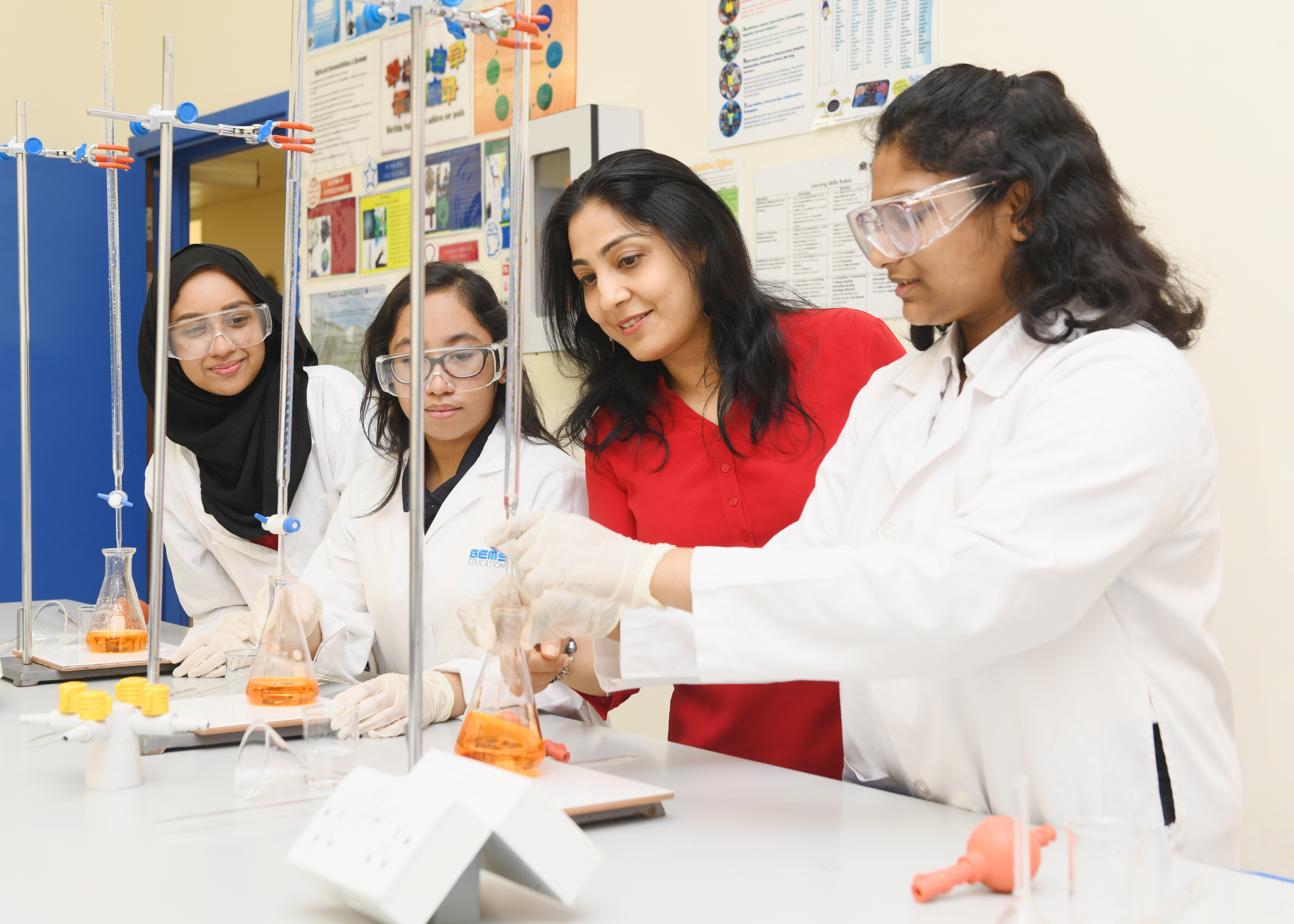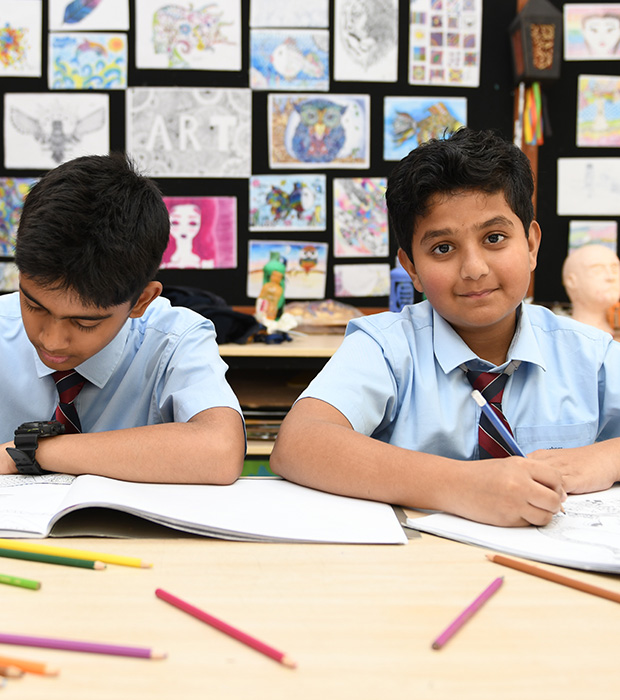
English Department - Primary
English Coordinator (FS – Year 2)
Ms. Mai Elswaf
Email id: [email protected]
English Coordinator (Year 3 – 6)
Ms. Rizwana Azim
Email id: [email protected]
Department Philosophy
At the Winchester School we believe that language and literacy are fundamental to the overall development of the child and enables their access to the curriculum in all its aspects. It is acknowledged that speaking and listening together with reading and writing are prime communication skills that are central to childrens’ cognitive, affective and psychomotor skills. More specifically, we aim to develop their ability to use and apply their literacy skills confidently and competently in their learning and in everyday contexts; to convey ideas and opinions clearly and respond creatively and critically to a wide range of information and ideas. A whole-school effort also goes into developing reading as a specific focus area.
As the Head of English, Primary at Winchester, I ensure that we deliver outstanding teaching and learning for the English department as per the National Curriculum of England, maintaining high standards and quality of content, at the same time integrating relevant and meaningful links cross-curricula aligned with the UAE National Agenda Parameters. The Primary English Action plan incorporates all these elements along with outstanding use of innovative ICT tools to ensure effective assessment for learning and feedback with personalization as a key priority – from support given to those who require it and challenging the most talented.
The creative, interactive, highly engaging and challenging lesson plans are personally monitored and guided by me along with the team of planners and all aspects of teaching and learning are monitored as well. In each English lesson we encourage children to think out of the box, initiate new ideas, create games, solve a problem to meet needs or make improvements to something that already exists to develop verbal reasoning, creative thinking and apply reading and language skills across curriculum. Each lesson involves differentiation and personalization with a host of enriching and creative activities planned throughout the year. Strategy and initiatives to develop reading are implemented each year as a key focus area with interactive and immersive story sessions and implementation of the balanced literacy model.
Department Facilities / Resources
We have a rich bank of resources for the strands that are catered to in English teaching units. For Early Years, children follow the Jolly Phonics scheme. For Years 1 to 6 we refer to the Collins Primary Literacy series, and Oxford Reading Tree series of books with interactive ICT resources including: electronic stories, Nelson Handwriting; Pen pals Interactive Handwriting software, Espresso resources for English, interactive whiteboard resources, class libraries, class novels, reading journals and reading logs along with guided reading resources, Big Writing resources and a well-stocked primary library. We also have a very well-resourced EAL programme and the library works effectively in recommending reading books. During distance and blended learning, students are provided access to free reading resources such as Oxford Owl made available by various online publishers.
Key Points from the Department Policy
- The ways in which practitioners and teachers interact and talk with children are critical to developing children’s speaking and listening skills.
- Phonics teaching is a crucial component of the Early Years curriculum to develop reading fluency.
- Big Writing is taught from year 1 to year 6 and has a huge impact on developing writing skills.
Reading is a key component not only for the English department but also across the curriculum, taught through a Balanced Reading approach to teach decoding, fluency and comprehension – literal, inferential and evaluative, across a wide range of text types and genres.
Reading is taught through:
- Whole class reading that develops listening skills, a love of story and reading for pleasure.
- Shared reading that immerses children in the pattern of story and features of text type.
- Guided reading and library lessons that target our students’ reading skills.
- Independent Reading in school and at home.
Writing is taught through:
- Shared writing that is modeled by the teacher as the expert writer with contribution from the children.
- Guided writing
- Independent Writing – through use of dictionaries, word banks, writing frame or plans.
- Booster classes for EAL children and emergent writers
L & T style
At The Winchester School, we use a variety of teaching and learning styles in English Lessons, as recommended by the National Literacy Strategy and the National Curriculum Programme of Study. Our principal aim is to develop the knowledge, skills, and understanding of our students in English. We do this through daily lessons that offer differentiated tasks for students of various abilities. Students have the opportunity to experience a wide range of texts and use a range of resources such as dictionaries, thesaurus and online resources to support their work. Students use a variety of online ICT tools to present their work and even lead learning. We encourage children to use and apply their learning in other areas of the curriculum with cross curricular engagement across subjects. Creativity is encouraged through different learning tasks which cater to multiple intelligences in class, for example, debates, presentations, designing advertisements, leaflets, animating scenes through coding and using ICT skills in a range of tasks. Language and Vocabulary games are used to introduce an element of play into the learning process.
There are children of differing abilities in all classes at The Winchester School. We recognise this and provide suitable learning opportunities for all children by matching the challenge of the task to the ability of the child. We achieve this through a wide range of strategies.
Assessment Procedure
Foundation Stage
This will take the form of ongoing formative assessment through observation of both indoor and outdoor activities. The tracker is used effectively to identify and plan the ELG (Early Learning Goals) from the seven aspects of development.
KS1 and KS2
AFL (Assessment for Learning) forms an important part of every lesson. Success criteria are shared with the students before the beginning of the unit. We assess children's work formatively through observations and marking. At the end of a unit of work, review is done, it may take the form of a big write, short write or an assignment or quiz – which provides opportunities for peer marking along with self-assessment. This, helps to identify the targets and to suggest appropriate next steps.
We also test reading comprehension and writing skills during the academic year through ongoing formative and summative assessments using SAT structured assessments. The students are assessed using the National Curriculum levels for English reading and writing.
Extra-curricular Activities
Our students are provided extensive opportunities to participate in extra-curricular activities as a part of the Reading initiative, Elocution, Debates, and via interschool and intra-school competitions for students. The Literacy week, Phonics and Reading Webinars for parents and active participation in the Emirates Literature Festival annually in Dubai are some highlights of our department.
Useful websites:

